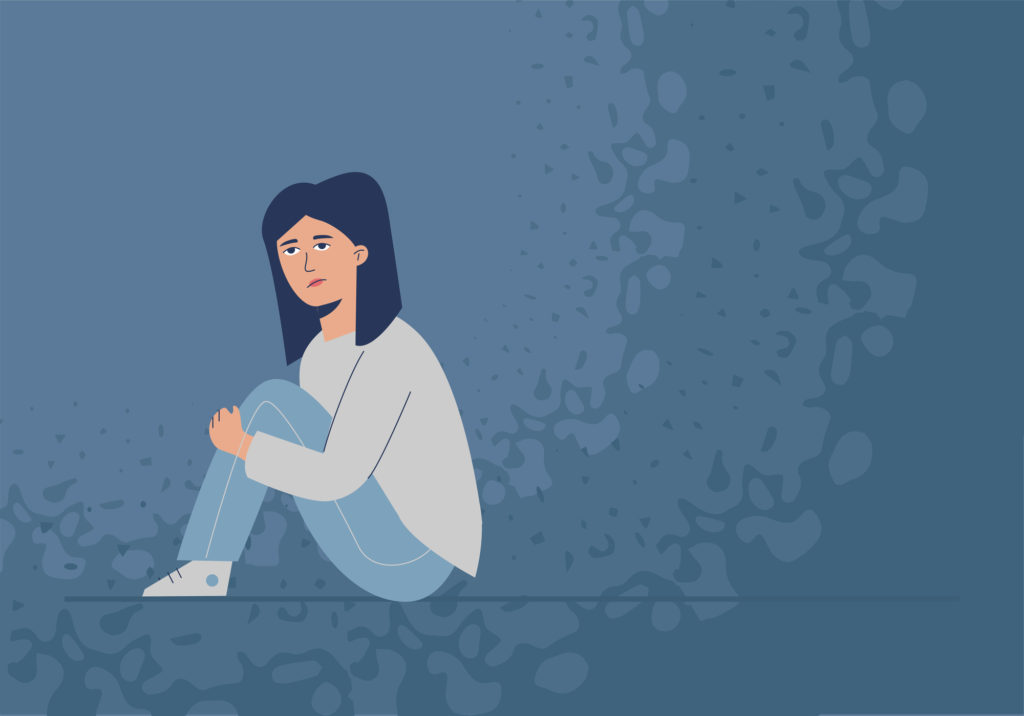
Many people experience increased anxiety when summer begins to fade into autumn, and depression in the deep dark months of winter. Anxiety and depression in autumn and winter are both related to less sunlight, colder temperatures, and the holiday season which can be more stressful or depressing than merry.
In this article, I’m going to cover some natural remedies for seasonal depression and anxiety, particularly Seasonal Affective Disorder (S.A.D. for short- what an appropriate acronym!)
Audio/podcast version:
How do you know if you have Seasonal Affective Disorder? It usually starts anywhere between October and December, and often gets worse when we turn our clocks back and it gets dark before dinnertime. It is dark before many people get off work, which only makes it worse.
When you don’t see the sunrise or the sunset, that not only causes depression but also a lack of Vitamin D and wonky melatonin and cortisol levels leading to messed up sleep.
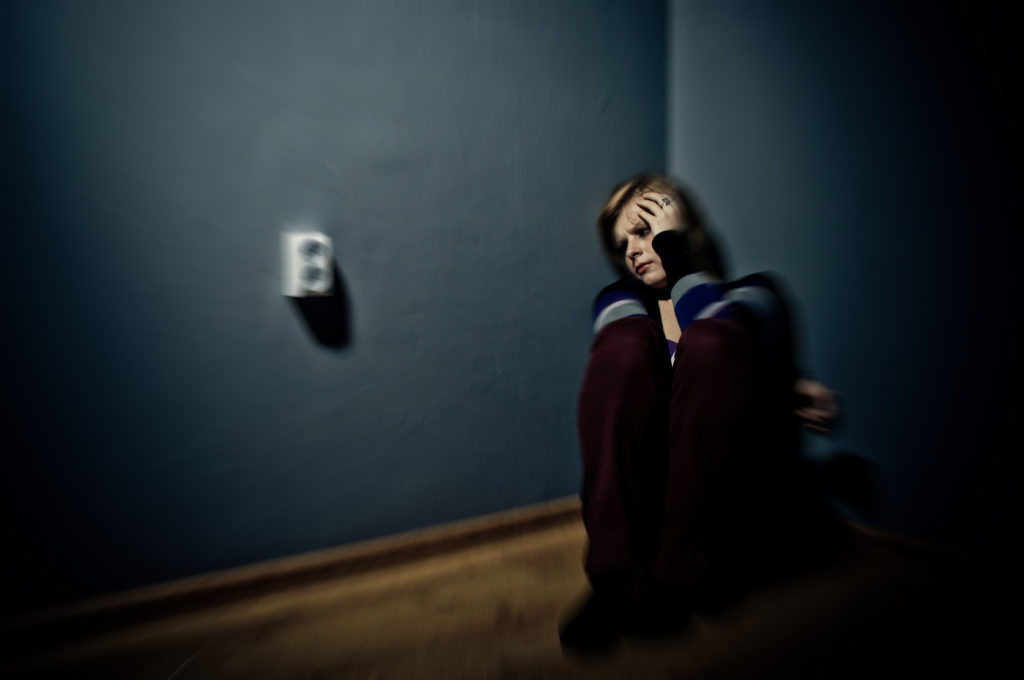
A lack of sunlight and time spent in nature leads to Nature Deficit Disorder, as well. It’s a real nightmare that perpetuates itself, only to finally be relieved by the increasing daylight and warmer temperatures that come later in the winter or early spring.
Increased anxiety and depression in the fall and winter are also a result of excess air. In Ayurveda, Autumn and Winter are the times when the air element is increased. For people who already have an excess of the air element (the body type of Ectomorph, or Vata in Ayurveda), this time of the year will most likely increase their anxiety and depression, along with dry skin, irritability, and constipation.
Symptoms of Seasonal Affective Disorder
Symptoms can vary from person to person, but these are the main ones that affect most people who have seasonal depression:
- Being lethargic
- Self-isolation
- Loss of interest in activities you normally enjoy
- Increased agitation or irritability
- Unhealthy food cravings
- Oversleeping
- Lack of motivation
- Feeling hopeless
Natural Remedies For Seasonal Affective Disorder and Anxiety
So, what can you do if you suffer from these symptoms every fall and winter? The answers are simple, and can be organized under one overarching theme: self care.
Self-care includes all the things that work as great natural remedies for anxiety and depression:
- Journaling
- Meditation
- Eating a seasonal diet for fall and winter
- Practicing hygge (Utilizing things and activities that are warm, cozy, and make you feel comfortable)
- Proper physical nourishment (healthy food, sleep, sunlight, exercise)
- Lowering overall stress levels (learn more about stress here)
I have mentioned before that solitude is necessary for self-care, but also remember to balance solitude with positive relationships. The wrong relationships will drain us and cause us to be more anxious or depressed, whereas the right relationships will help support us when we need it most. So be sure to stay in regular contact with your friends and family if they are supportive relationships.
The following information was taken from my Body, Mind, and Soul Self-Care Planner which goes in-depth on how to align your self-care routine with nature’s daily, monthly, and yearly cycles.
Autumn Self-Care
Go to Bed Earlier– As the sun sets earlier, it helps our bodies adjust to the seasons by also going to bed earlier. You don’t have to go to bed as early as in the winter, but go earlier than you did in the summer.
Start Eating Autumn Foods– This is the time of year to start eating hearty meals that are nourishing. Nature gives us a harvest of these types of foods, so try to eat more of them:
- apples
- squash
- sweet potatoes
- pumpkins
- chili
- soups
- stews
- chicken and beef (if you’re not a vegetarian)
Start Wearing Soft Warm Clothing– This might seem like common sense, but it’s worth mentioning. Being fashionable is overrated, being comfortable is good for your body, mind, and soul. There might even be ways to do both. Flannel and fleece are your comfy friends in the fall and winter. Even switching your bedsheets to warmer material might help you sleep better.
Use a Humidifier– In autumn, the air gets a lot drier. Using a humidifier will reduce cold and flu symptoms as well as keeping your skin hydrated.
Use Natural Lotions and Oils– Whether or not you use a humidifier, your skin probably needs more moisture at this time of year and into the winter. One of the best self-care practices you can do in the autumn and winter is to rub lotion or oil on your skin. In Ayurveda, they traditionally put oil on the body every day; this is called Abhyanga. Be sure to use only natural ingredients if making your own, or only buy from well-respected companies who use organic products.
Self-Care For Winter
Eat More– In the winter, you have a free pass to eat more! Not only should you eat more often, but you can eat a larger quantity. Your body is working hard at storing energy and it needs more food to do this. A few extra pounds will most likely get added anyway as your body prepares for cold temperatures. You should also eat more protein and fat at this time (great news if you are a meat eater!)
Go to Bed Earlier Than You Did in the Autumn– With the sun setting around 5pm, our bodies naturally get tired earlier in the winter. Don’t fight against nature; try to get to bed around 10pm. It is not only okay but healthy to get extra sleep in the winter. This is how our ancestors lived.
Use Lotions and Oils– This is also mentioned in the autumn section, and even more important in the winter.
Use Soft Warm Materials– This goes for your bedding and your clothing. This is also true for autumn but even more so for the winter. Nothing feels better in the winter than curling up on the couch in front of a fireplace wearing soft fleece from head to toe. Being comfortable will help the stress fade away.
Go Within– Winter is the time of year where everything takes a pause. This is a great time to start a journaling practice if you don’t have one already. Winter is also a great time to do a lot of meditation, yoga, and contemplation. In the active months of the year, we often lose ourselves in all the busyness of our lives, so in the winter it is very balancing to find yourself again.
Plan For Next Year- Buy a planner and start getting excited for the new year. It’s good for the mind to create goals. Studies have shown that your brain releases more dopamine when you are planning a fun activity than it actually does when you are doing that activity! This explains why people are often very excited and happy leading up to a vacation but that feeling fades once the vacation has begun. So planning for next year will give you that dopamine boost to get excited for next year’s plans.
Indoor Hobbies– Winter is the best time of year to finally catch up on all your indoor hobbies such as writing, reading, craft making, or playing board games with your family. Of course, if you love winter, by all means, get out there and do some winter activities too!
I have an even more in-depth article here giving my 10 Best Self-Care Tips For Winter which also gives some great information about how to get through fall and winter.
If you need more journal guidance, I have a printable Self-Care For Seasonal Affective Disorder journal. It contains 16 pages of journal prompts that will help you with self-care, autumn anxiety, and Seasonal Affective Disorder. Click the image to check it out on Etsy.
Did this article help you? Share the love on Pinterest!
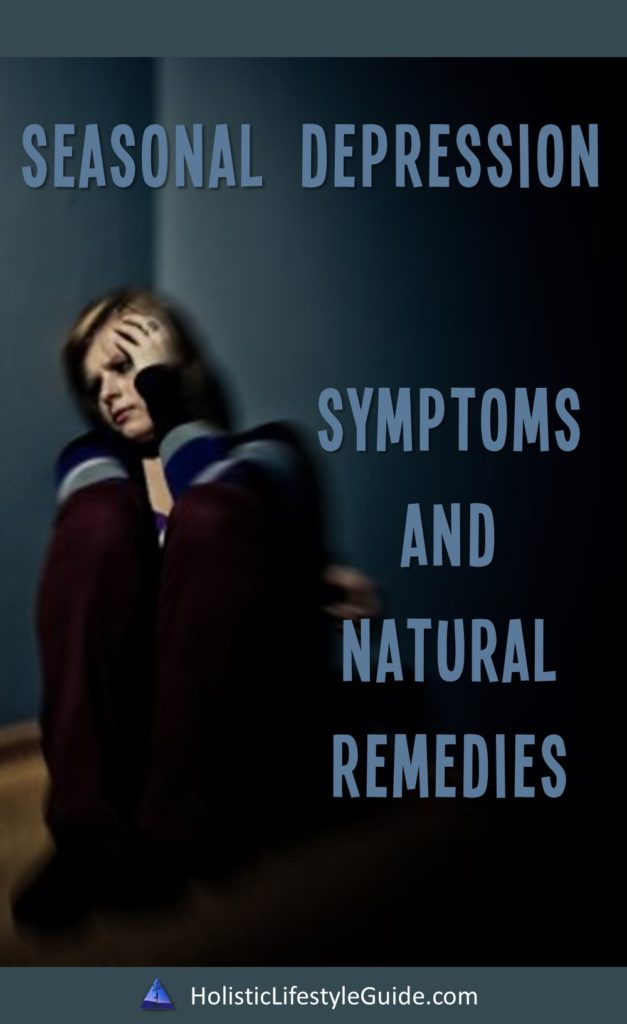
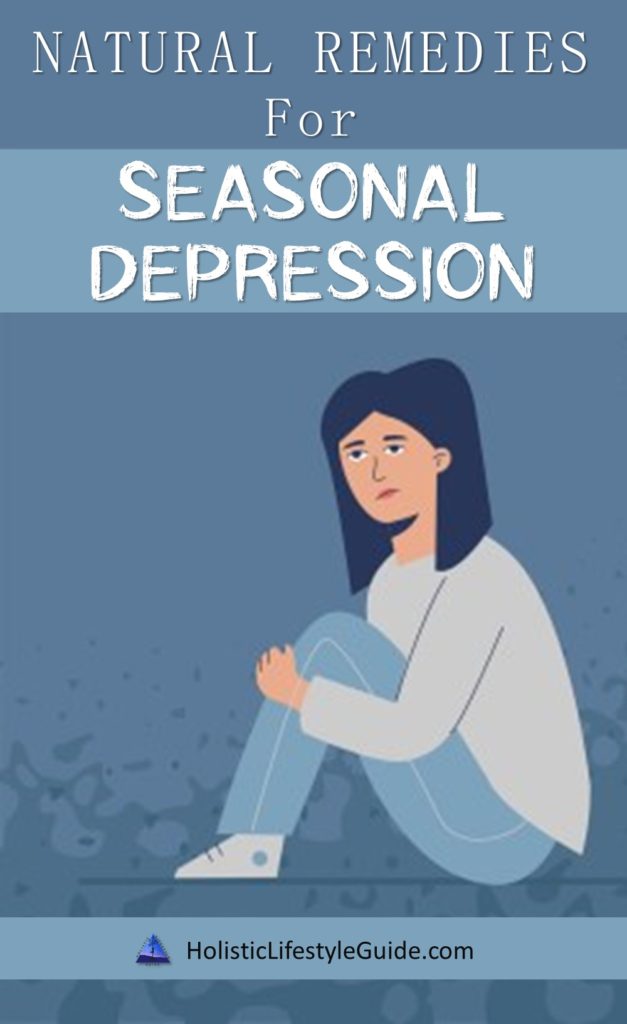
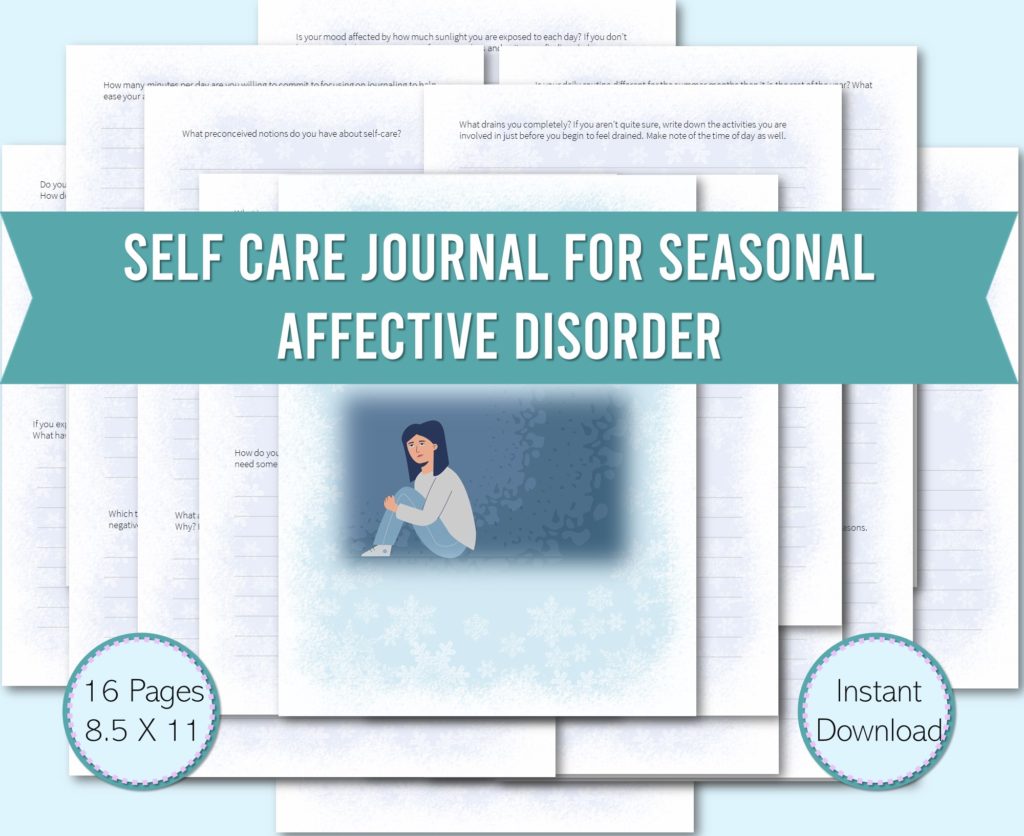
9 Comments
Comments are closed.